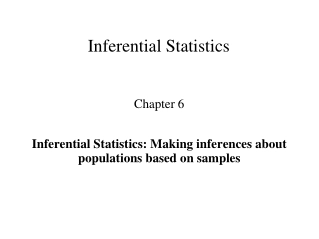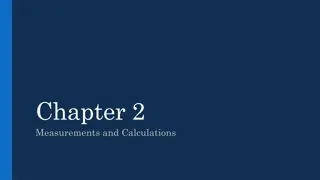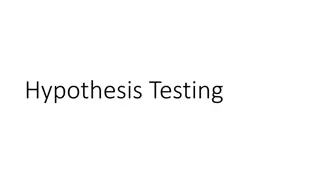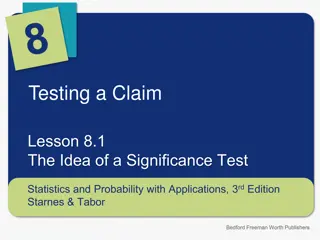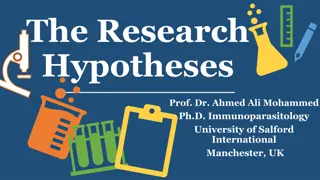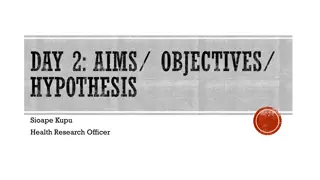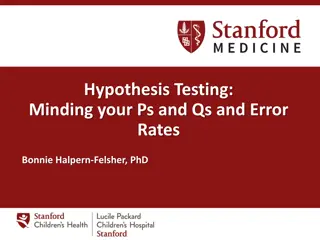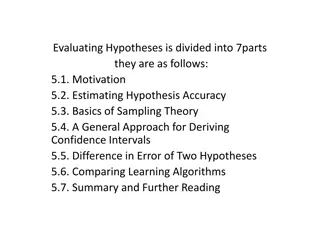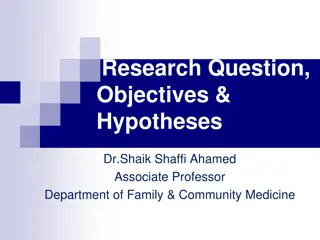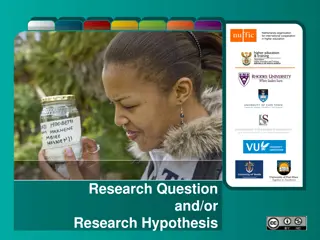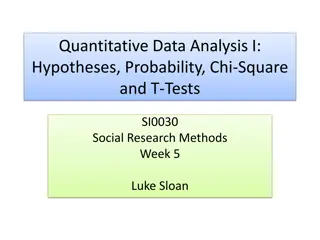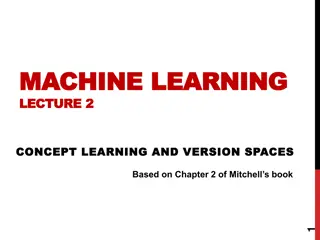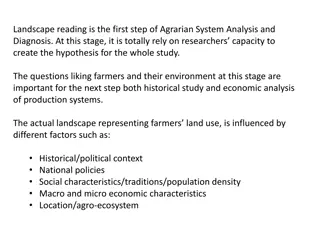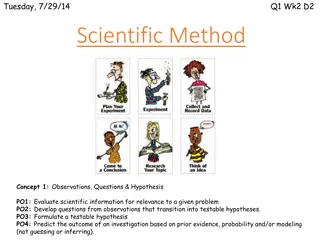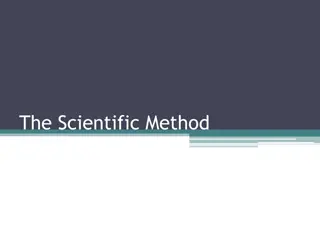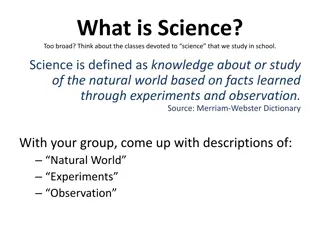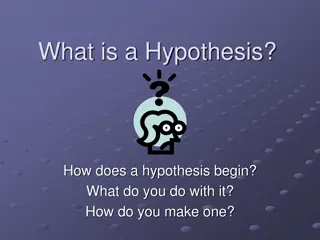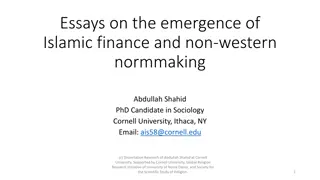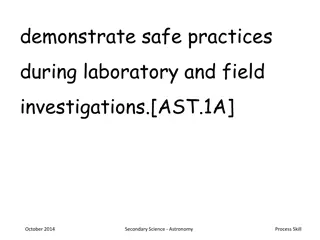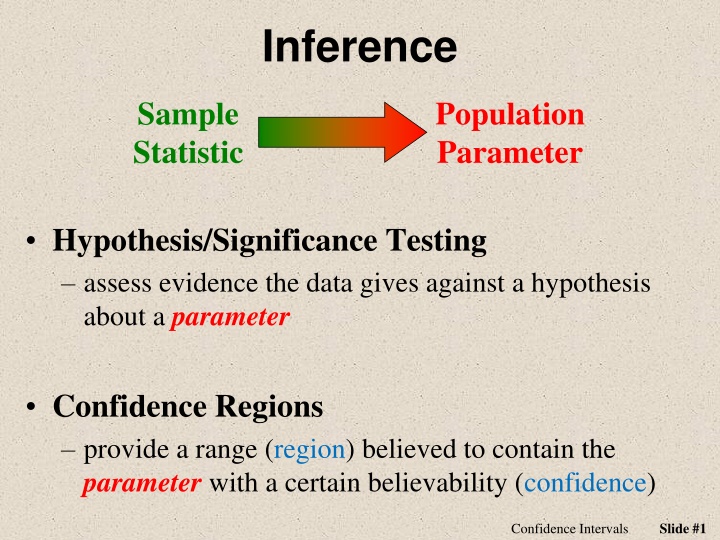
Inference and Hypothesis Testing in Statistics
This content covers essential concepts in statistical inference, hypothesis testing, confidence intervals, and the scientific method. It explains the difference between null and alternative hypotheses and provides examples to illustrate their application in real-world scenarios. Through visual aids and definitions, readers can grasp the significance of hypothesis testing in drawing conclusions from data.
Download Presentation

Please find below an Image/Link to download the presentation.
The content on the website is provided AS IS for your information and personal use only. It may not be sold, licensed, or shared on other websites without obtaining consent from the author. If you encounter any issues during the download, it is possible that the publisher has removed the file from their server.
You are allowed to download the files provided on this website for personal or commercial use, subject to the condition that they are used lawfully. All files are the property of their respective owners.
The content on the website is provided AS IS for your information and personal use only. It may not be sold, licensed, or shared on other websites without obtaining consent from the author.
E N D
Presentation Transcript
Inference Sample Statistic Population Parameter Hypothesis/Significance Testing assess evidence the data gives against a hypothesis about a parameter Confidence Regions provide a range (region) believed to contain the parameter with a certain believability (confidence) Slide #1 Confidence Intervals
The Scientific Method Make Observation Construct Hypothesis Make Predictions from Hypothesis Gather Observations / Experiment Compare Observations to Predictions Match, gain belief in hypothesis Don t match, lose belief in hypothesis Slide #2 Inference Concepts
The Scientific Method Statistical hypothesis testing is at center Compares predictions to observations in the face of sampling variability Statistical hypothesis testing follows same logic Compares observations to predictions from a hypothesis Slide #3 Inference Concepts
Two Main Hypothesis Types Research Hypothesis a general statement of an effect Statistical Hypothesis (two types) Alternative Hypotheses (HA) a mathematical representation of the research hypothesis one of HA: parameter <,>, specific value Null Hypotheses (Ho) the no effect or no difference situation always Ho: parameter = specific value Slide #4 Inference Concepts
What are the null and alternative hypotheses The mean density of Canada yew (Taxus canadensis) in areas not exposed to Moose (Alces alces) on Isle Royale will be more than 1 stem per m2 HA: >1 vs. H0: =1 Where is the mean density of Canada Yew in ALL areas not exposed to Moose on Isle Royale. Slide #5 Inference Concepts
What are the null and alternative hypotheses The percentage of Ashland residents over the age of 40 whose parents were born in Ashland is greater than 35%. HA: p>0.35 vs. H0: p=0.35 Where p is the proportion of ALL Ashland residents over the age of 40 whose parents were born in Ashland Slide #6 Inference Concepts
What are the null and alternative hypotheses The mean age of medical college students (Homo sapien) is less than 24 years HA: <24 vs. H0: =24 Where is the mean age of ALL medical college students. Slide #7 Inference Concepts
What are the null and alternative hypotheses The mean longevity of employees at the company is different than 10 years HA: 10 vs. H0: =10 Where is the mean longevity for ALL employees at the company. Slide #8 Inference Concepts
What are the null and alternative hypotheses A research paper claims that the mean fetal heart rate is 137 bpm. A doctor feels that the mean rate is lower for women admitted to her clinic. HA: <137 vs. H0: =137 Where is the mean fetal heart rate for ALL pregnant women admitted to her clinic. Slide #9 Inference Concepts

